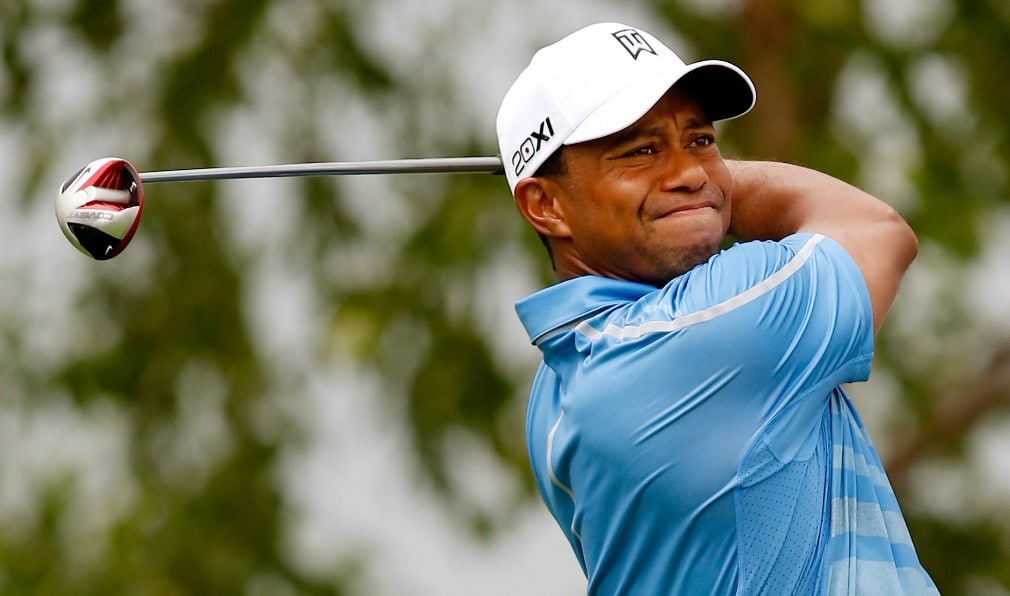Recently, Tiger Woods spoke with Robby Kalland of CBS Sports about his recovery after back surgery. “Health-wise, I continue to improve. Still no timetable on my return, but I’m excited to get back out there with the guys.”1
I work alongside Kevin Pauza, M.D., a spine specialist who focuses on treating patients who have had prior failed spine surgery. I recently spoke about Tiger Woods with Dr Pauza. “I wish Woods a full recovery, but unless he changes course, there’s little reason to feel optimistic about his recovery.” His thoughts are based on his personal experience associated with patients like Woods who have had failed spine surgeries.
For the past twelve years, Dr. Pauza has focused on helping patients regain a normal, healthy quality of life. He has treated several patients who have had previous failed spine surgeries. Additionally, he treats patients who desire to avoid surgery all together. Dr. Pauza believes that the underlying premise of surgical discectomies to treat low back pain may be flawed, as evidenced by current outcomes.
Dr. Andrew Hecht, Chief of Spine Surgery at Mount Sinai Hospital, commented on the golf legend surgical discectomies. “There is still a hole there and that hole has to heal on its own, but its forever a weak spot in the disc…the problem with anybody who has a microdiscectomy is reherniating the disc.”2
To help solve this dilemma, Dr. Pauza’s research focuses on the regrowing of bulged, herniated, and degenerated discs. “Disc tears lead towards bulges and degeneration, so they should be healed and sealed, instead of routinely cut”, Pauza said. “Unfortunately, some spine surgeons still believe pinched nerves alone cause pain. However, today we know that pinched nerves are not the primary cause of low back pain. Instead the pain is primarily caused by disc and nerve inflammation. When a disc’s outer portion tears, this causes its nucleus pulposus, the jelly-like inner substance to leak. This leaked substance causes inflammation in the disc and spinal leg nerves, resulting in low back and leg pain. This is why surgery can’t predictably relieve pain. Today’s current high numbers of spine re-operations attests to this fact. Furthermore, many patients are directed towards more costly surgical fusions, and unfortunately, fusions cause degeneration of adjacent discs, creating a domino effect.
Dr. Pauza also shared with me that the number of Americans undergoing back surgery without obtaining relief increased exponentially last year. As Tiger Woods doesn’t seem to be showing improvement, along with millions of others, this problem shouldn’t be ignored, and surgery that’s ‘par for the course’ needs to be reconsidered. He believes there is a time and place for discectomies and fusions, when indicated, however he feels many fusions are being encouraged without first educating the patient about regenerative medical treatments.
It is Pauza’s belief that we may be injuring discs further with scalpels, lasers and metal hardware, when we should be attempting to regrow damaged and degenerated discs where indicated. Before recommending costly and debilitating spinal fusions, the medical community of spine surgeons should consider better informing their patients on the long term outcomes of spine surgery.
Dr. Kevin Pauza is a Founding Partner of Texas Spine and Joint Hospital. He recognized that fusions are occasionally the only option left, yet often lead to repeat surgeries. Dr. Pauza was awarded 16 patents in disc biologics, and his work was awarded by the North American Spine Society as Outstanding Study of the Year.

